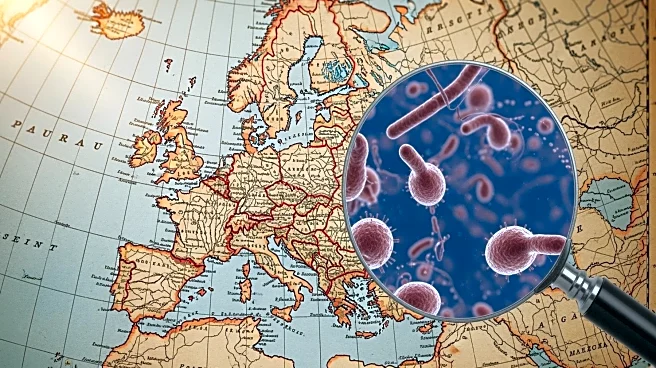What's Happening?
A recent study published in Current Biology has identified two pathogens, Salmonella enterica and Borrelia recurrentis, in the remains of soldiers from Napoleon's 1812 Russian campaign. These pathogens are
known to cause paratyphoid fever and relapsing fever, respectively. The research utilized advanced DNA sequencing techniques to analyze the remains, providing new insights into the diseases that contributed to the high mortality rate among Napoleon's troops.
Why It's Important?
The study offers valuable insights into the historical impact of infectious diseases on military campaigns and their role in shaping historical events. Understanding the pathogens that affected Napoleon's army can inform modern epidemiological research and public health strategies. The research also demonstrates the potential of DNA analysis to uncover new information about historical events, contributing to a more nuanced understanding of the past.
Beyond the Headlines
The findings highlight the importance of technological advancements in historical research, allowing for more detailed investigations of ancient remains. This interdisciplinary approach can lead to a reevaluation of historical narratives and a better understanding of the factors that influenced historical events.









